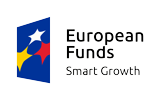Projects
The main goal of this project is to develop an innovative fusion protein (immunotoxin) for liver cancer treatment, with focus to Hepatocellular carcinoma (HCC). Liver cancer, primarily HCC, is the fourth leading cause of death from cancer. Proposed immunotoxins will be directed to the highly selective antigens on the tumor cells. The project assumes usage of designed fusion proteins comprised of highly selective cancer antibody fragments attached to cytotoxic domains. We plan to create immunotoxins containing cytotoxic moieties derived from catalytic domains of Pseudomonas aeruginosa exotoxin A and diphteria toxin. One of the innovative aspects of the project is the change in immunotoxins subcellular route within human cells. This modification will be a key factor regulating an immunotoxin activity dependently on cell proliferation rate, thus making toxin even more selective anti-cancer drug. The project is conducted in collaboration with the Warsaw University (CeNT) and the Institute of Medical Biology of PAS. As a result, innovative immunotoxins will be patented and commercialized in the further.






